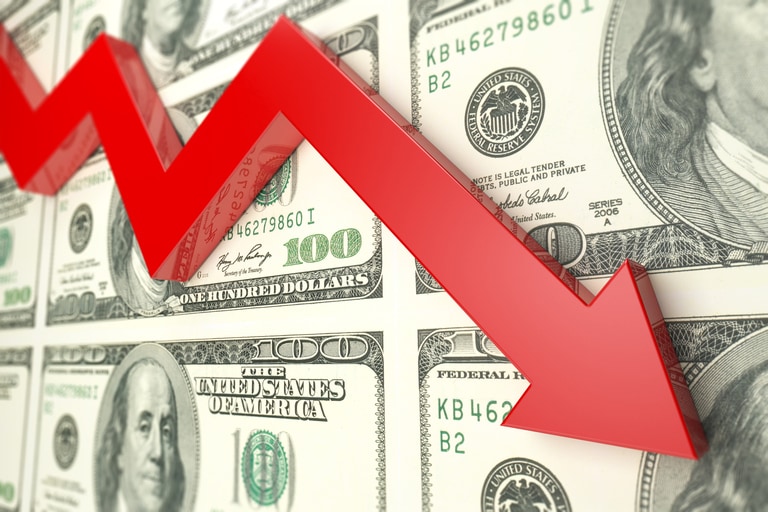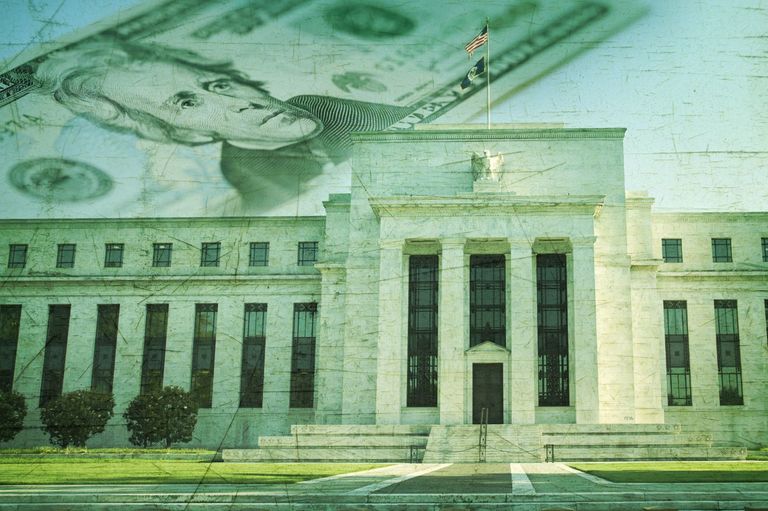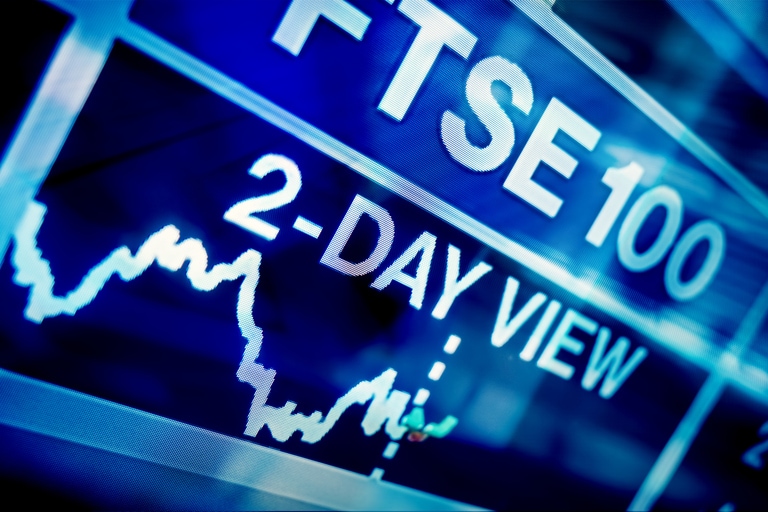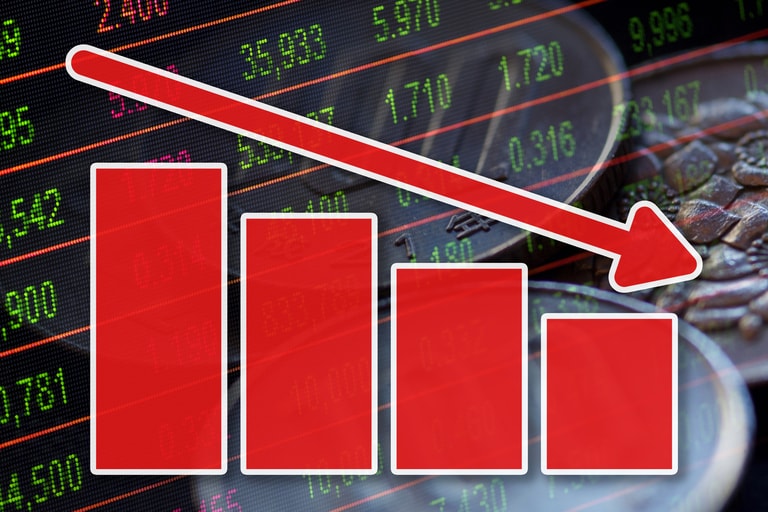Read our pick of the top stories to look out for this week (20 to 26 September), and view our key company earnings schedule.
In this week's video, Michael looks towards the Federal Reserve and Bank of England rate meetings on Wednesday and Thursday, and discusses the German election, taking place on Sunday.
Canada election
MON 20: A few weeks ago Canadian prime minister Justin Trudeau rolled the dice by calling a snap election, hoping it would give him a renewed mandate to oversee the government’s response to the Covid-19 pandemic. However, his calculation that the vaccine programme would see him returned to power with a working majority appears to have blown up in his face, as his polling numbers slid sharply. It appears voters took his decision based on what it was, a piece of cynical opportunism, and could well punish him accordingly for his arrogance. Several polls have questioned the timing of the decision to call an election. At the time of a national crisis, voters would rather their politicians focus on the key problems of the day, and with thousands dying and getting sick as a result of the virus, Trudeau appears to have been found out, with many thinking that his administration is more focussed on style than substance. We’ll get a clearer picture of voters’ sentiments following the Canadian election on Monday.
FedEx Q1 results
TUE 21: Parcels and logistics companies are generally good bellwethers of an economy, and US delivery company FedEx is no exception. So it’s telling that the shares have been in decline since the record highs set in May. The company has also been a key cog in the US government’s vaccination programme, as it ships doses of the vaccine across the country. In June the company announced Q4 revenue of $22.6bn, another increase on the previous two quarters, and a rise of 30% on the previous year. FedEx Express made 50% of that quarterly revenue number at $11.3bn, an increase of 32% from the previous year, as operating income rose to $737m. Average package volume at FedEx Ground, which counts Walmart as a partner, saw a rise of 9% in shipments in Q4, with revenues rising to $8.1bn. Since those record-breaking numbers in June, the shares have continued their recent declines.
While pandemic safety measures have seen costs rise and margins shrink, there is a concern that higher costs along with shortages of workers could start to dilute margins. Total operating expenses rose 23% in Q4, which is fine if volumes also increase. However, the slowdown seen in the US economy during the last few weeks could start to impact margins, which might mean profits start to take a hit, as supply chain costs increase. Expectations are for Q1 profits to match those in Q4 at $5 a share.
Kingfisher half-year results
TUE 21: Despite all the doom and gloom around the retail sector over the past eighteen months, some companies have done very well. Kingfisher, the owner of B&Q and Screwfix, is one of those, with the share price higher than it was pre-pandemic, and over 25% higher year-to-date. Classed as an essential retailer during the first lockdown, the business remained open and while there have been higher costs, these appear to have been offset by even higher sales volumes. Whether this is still the case in Q2 remains to be seen – its last trading update in Q2 pointed to a slowdown in sales growth.
When the company reported in March, full-year sales rose 6.8% to £12.34bn, driven largely by a 158% increase in ecommerce, which now accounts for 18% of total group sales, compared to 8% a year ago. Trading in the UK and Ireland was particularly robust, with Screwfix exceeding £2bn in sales for the first time ever, and the company paying a total dividend of 8.25p per share last year. When Kingfisher reported in Q1 in May, they upgraded guidance for the first half from low double-digit like-for-like sales growth to the mid to high teens, as well as raising its profit outlook from £580m to £600m. They followed this in July with another upgrade to like-for-like sales growth, raising it to 22%, and raising the profit outlook to between £645m and £660m.
With the Q2 trading update pointing to slower sales growth, the wider question is whether the slowdowns affecting its French and Iberian businesses were temporary, or part of a wider pattern of weaker demand. In terms of the bigger picture, and considering rising costs in raw materials like lumber, investors will be looking for further rises in the cost base, and at whether the company has been able to pass some of these on to its customers. They'll also be looking at whether the business mix has seen a change in consumer buying patterns. The group as a whole saw total Q1 sales rise 60%, to £3.45bn, with UK reported sales rising 66.8%. The B&Q business saw an 82.7% rise, with Screwfix contributing 42.5%.
US Federal Reserve meeting
WED 22: Just before the August payrolls report was released there was a widespread expectation that this week’s September meeting would provide the opportunity for the US central bank to outline the timeline for the reduction of its $120bn a month bond-buying programme. A payrolls report of 235k appears to have put paid to that narrative, but that doesn’t mean that a tapering of bond purchases won’t happen. It may just take a little longer to unfold, with most expecting a December start. The reality is that there’s little reason why it couldn’t happen sooner, given where the US economy is now, relative to where it was in December last year. If the European Central Bank can start reducing the amount of its PEPP program, there is absolutely no reason the Federal Reserve can’t follow suit, despite the poor August report. There is little sign that any of the so-called hawks on the FOMC are starting to dial back their expectations of a reduction, despite the recent mixed messaging from Dallas Fed President Robert Kaplan.
The fear is that the Federal Reserve is becoming too complacent about rising inflation risks, especially with consumer prices already at their highest levels since the early 1990s. With many of the Fed members who are calling for a scaling back of bond purchases being voting members next year, the taper still remains very much a matter of when and not if. In other words, December, or possibly later.
Germany & France flash PMIs (September)
THU 23: The August purchasing mangers’ index (PMI) numbers from both Germany and France, continued the slip back. Although they still remained fairly strong, there are signs of further weakness in the pipeline. Nonetheless, the readings still remain in the high 50s for both, with French manufacturing and services very much aligned in terms of resilience. German activity is even more resilient and despite the disruptions caused by various industry shutdowns, higher prices, and weaker exports to China, both manufacturing and services activity came in above 60. Whether this state of affairs can continue is up for debate, given the recent deterioration in business confidence. German IFO business activity has declined in recent months, slipping to a three-month low in August. All of these could fall further in September, especially given the uncertainty over this week’s German election, which is likely to kick off a long-winded tug of war to form a new government, as Angela Merkel departs after 16 years at the helm. Never underestimate the incumbency premium, which will no longer be there following the election on 26 September.
UK flash PMIs (September)
THU 23: There’s been an increasing disconnect in recent months between what the purchasing managers’ index (PMI) is telling us and what is happening in the Office for National Statistics numbers when it comes to manufacturing and industrial production, as well as construction output. The PMI numbers do appear to be starting to reflect some of that weakness; however, they are still coming in at fairly decent levels, well above 50. Manufacturing activity only slowed modestly from the July levels of 60.4 to 60.3, albeit down from 63.9 in June. Services, on the other hand, has shown a much sharper slowdown from the May peaks of 62.9, falling back to 55 in August, largely because of the so-called ‘pingdemic’, which resulted in staff shortages, and various business disruptions, impacting economic activity in July as well.
With the easing of Covid-19 restrictions on 16 August, there should be an improvement for September’s number. Although it’s also important to remember that certain sectors, like travel, are still struggling as a result of consumer behaviour, which is much more cautious than it was pre-pandemic. Another trend to keep a close eye on will be higher prices as businesses struggle to source the necessary materials for various goods and services.
Bank of England rate meeting
THU 23: Recent comments from Bank of England governor Andrew Bailey, shone an unexpected light on the deliberations of the Monetary Policy Committee (MPC) when they last met in August. External MPC member Michael Saunders voted against the status quo when it came to the bond buying program, while everything else was unchanged as far as monetary policy was concerned. It now turns out that almost half of MPC members appear much more confident about the UK economy than they were at the previous meeting. In comments to politicians at the beginning of this month, the governor admitted that at least four MPC members felt that the recent improvement in basic economic conditions could be used as justification for a rate rise, although one wasn’t imminent yet. This was quite an unexpected moment of candour that gave insight into the deliberations on the MPC at the last meeting. While it doesn’t suggest that policymakers are itching to pull the trigger on a rate move, it can’t be too long before the central bank reins in its bond buying programme.
On Thursday, we’ll also get an insight into the stance of the two new members of the MPC, new chief economist Huw Pill and external member Catherine Mann, who has replaced Gertjan Vlieghe. Pill’s position will be noteworthy given his recent critiques of unlimited central stimulus, which suggests he might lean towards the hawkish side. If so, this would be most welcome, given the tendency of most central bankers to get caught up in collective groupthink. No changes are expected this week on the rate front. However, it wouldn’t be a surprise to see a reduction in the pace of bond purchases – a move that would be most welcome. Even if that doesn’t happen, we could see more dissent on the bond purchase front, with other members joining Michael Saunders.
Darden Restaurants Q1 results
THU 23: Like most popular restaurant chains, the owner of the ubiquitous Olive Garden and Longhorn restaurant chains has been able to offset the effect of a lot of the shutdown period by offering a takeaway service. Darden Restaurants embarked on a $35m restructuring program to cut costs as a result of the lower footfall that is expected to be the norm going forward, as it looks to reduce its debt load. With the stimulus acting as a boost to its Q3 and Q4 numbers, the shares hit record highs in August, helped in some part perhaps by a brand name check from Taylor Swift. Expectations appear a little on the frothy side.
In Q4, sales rose 80% compared to the year before, which was a pretty low bar given the comparatives. With upward pressure on hiring costs likely to continue over the rest of the year, and while summer sales might well show a continued uplift, the real test is likely to come in Q2, as we look to the autumn. Profits are expected to come in at $1.64c a share; however, the real challenge is likely to come from the outlook, especially with the share price at current levels.
Harbour Energy half-year results
THU 23: Previously known as Premier Oil, the energy company rebranded as Harbour Energy on 1 April. The company’s shares then slipped back, despite updated guidance for 2021 production from 200kboepd to 215kboepd, with operating costs expected to be in the region of $15 a barrel. The new net debt figure stands at $2.9bn, with current liquidity of $700m. The change of name and restructuring doesn’t appear to have markedly changed sentiment towards the business, although the shares have managed to recover from the lows in July. This recovery appears to have come about following the business’s recent announcement that its Tolmount gas platform would probably be operational around year end. As a result of the delay, production guidance for the year was revised lower to between 185kboedpd and 195kboepd, with full-year operating costs unchanged at $15 a barrel. The company has also been at the forefront of speculation that Neptune Energy, which is backed by private equity groups Carlyle and CVC, might be exploring possible merger options, at a time when the focus on green energy is making life more difficult for the independent energy sector and when their debt levels are already high.
Nike Q1 results
THU 23: Nike shares have underperformed this year; however, the Q4 results in June helped give them a huge lift, pushing them above the previous record highs at the end of last year. That said, the company’s margins have come under the same pressure as its peers. The turnaround in fortunes has been quite startling, from posting a Q4 loss in 2019 of $790m (or $0.51c a share) due to the lockdowns across Europe and the US, which followed on from the disruption in China, the company bounced back in 2020. This was driven by direct sales from its own stores, which rose to an annual $16bn and represented 32% of total revenue profits which bounced back strongly, with annual profits rising 196%, pushing them to well in excess of pre-pandemic levels, to the tune of 42%. Gross profit margins for the year also rose to 44.8% in 2021, with Q4 margins coming in at 45%, helped by a strong performance in its US market, which represents 41% of global sales.
There’s little doubt that the stimulus cheques played a part in the Q4 recovery, as revenues rose to $12.34bn, which means there may be a slowdown in Q1, given recent weakness in the US economy. We also need to be aware of supply chain issues, which Nike had to contend with in Q3 last year, and which are once again becoming a wider problem. Nonetheless, profit expectations for Q1 are still high, with expectations of $1.11c a share, a decent increase on the $0.93c a share in Q4. For 2021/22, Nike said it expected to see annual revenues surpass the $50bn mark, with the first half of its new fiscal year expected to grow faster than the second half.
Germany election
SUN 26: The upcoming German election has all the hallmarks of a symbolic moment in German politics, as Angela Merkel steps down as leader of Europe’s largest economy after four terms as German chancellor. Having been chancellor of Germany since 2005, Merkel has been able to navigate the intricacies of German and EU politics with enormous dexterity and political skill. Her departure leaves a huge hole, which will be difficult to fill from the array of current incumbents seeking to replace her. It remains to be seen what her legacy will be, given that for the last ten years, the problems she has confronted have yet not been adequately dealt with. Depending on where you sit on the political divide, she is either a political colossus who has kept Germany as Europe’s most efficient economy, or a political procrastinator who, while keeping the train on the tracks, has failed to address the enormous challenges facing both Germany and the EU. Whichever side of the fence you sit, one thing is certain – the political void she leaves will make German politics much more complicated, as well as potentially shifting the balance of power in Europe when it comes to shaping EU policy. Read more on the German election
Index dividend schedule
Dividend payments from an index's constituent shares can affect your trading account. View this week's index dividend schedule
Selected company results
| Monday 20 September | Results |
| Finsbury Food (UK) | Full-year |
| Frenkel Topping (UK) | Half-year |
| Lennar Corp (US) | Q3 |
| Real Good Food (UK) | Full-year |
| Silver Bullet Data Services (UK) | Half-year |
| Wilmington (UK) | Full-year |
| Tuesday 21 September | Results |
| Alphawave IP Group (UK) | Full-year |
| Alliance Pharma (UK) | Half-year |
| Apogee Enterprises (US) | Q2 |
| AutoZone (US) | Q4 |
| Cambridge Cognition Holdings (UK) | Half-year |
| Cracker Barrel Old Country (US) | Q4 |
| Craneware (UK) | Full-year |
| Dignity (UK) | Half-year |
| FedEx (US) | Q1 |
| Fintel (UK) | Half-year |
| Innovage Holding (US) | Q4 |
| IsoRay (US) | Q4 |
| Kingfisher (UK) | Half-year |
| Learning Technologies (UK) | Half-year |
| M&C Saatchi (UK) | Half-year |
| Pensionbee Group (UK) | Half-year |
| Personal Group Holdings (UK) | Half-year |
| SIG (UK) | Half-year |
| Stitch Fix (US) | Q4 |
| Time Finance (UK) | Full-year |
| Wednesday 22 September | Results |
| ECSC Group (UK) | Half-year |
| General Mills (US) | Q1 |
| HB Fuller (US) | Q3 |
| KB Home (US) | Q3 |
| Mirriad Advertising (UK) | Half-year |
| Oxford Biomedica (UK) | Half-year |
| PZ Cussons (UK) | Full-year |
| Saga (UK) | Half-year |
| Steelcase (US) | Q2 |
| TEN Entertainment Group (UK) | Half-year |
| WANdisco (UK) | Half-year |
| Thursday 23 September | Results |
| AAR Corp (US) | Q1 |
| Aquis Exchange (UK) | Half-year |
| CalAmp (US) | Q2 |
| Costco Wholesale (US) | Q4 |
| CVS Group (UK) | Full-year |
| Darden Restaurants (US) | Q1 |
| DFS Furniture (UK) | Full-year |
| Dynatronics Corp (US) | Q4 |
| Endava (UK) | Q4 |
| Fonix Mobile (UK) | Full-year |
| Harbour Energy (UK) | Half-year |
| ImageWare Systems (US) | Q2 |
| NIKE (US) | Q1 |
| Progress Software (US) | Q3 |
| Research Solutions (US) | Q4 |
| Rite Aid (US) | Q2 |
| SafeStyle (UK) | Half-year |
| Supermarket Income Reit (UK) | Full-year |
| Vail Resorts (US) | Q4 |
| Friday 24 September | Results |
| Judges Scientific (UK) | Half-year |
| Phoenix Spree Deutschland (UK) | Half-year |
Company announcements are subject to change. All the events listed above were correct at the time of writing.
Disclaimer: CMC Markets is an execution-only service provider. The material (whether or not it states any opinions) is for general information purposes only, and does not take into account your personal circumstances or objectives. Nothing in this material is (or should be considered to be) financial, investment or other advice on which reliance should be placed. No opinion given in the material constitutes a recommendation by CMC Markets or the author that any particular investment, security, transaction or investment strategy is suitable for any specific person. The material has not been prepared in accordance with legal requirements designed to promote the independence of investment research. Although we are not specifically prevented from dealing before providing this material, we do not seek to take advantage of the material prior to its dissemination.







